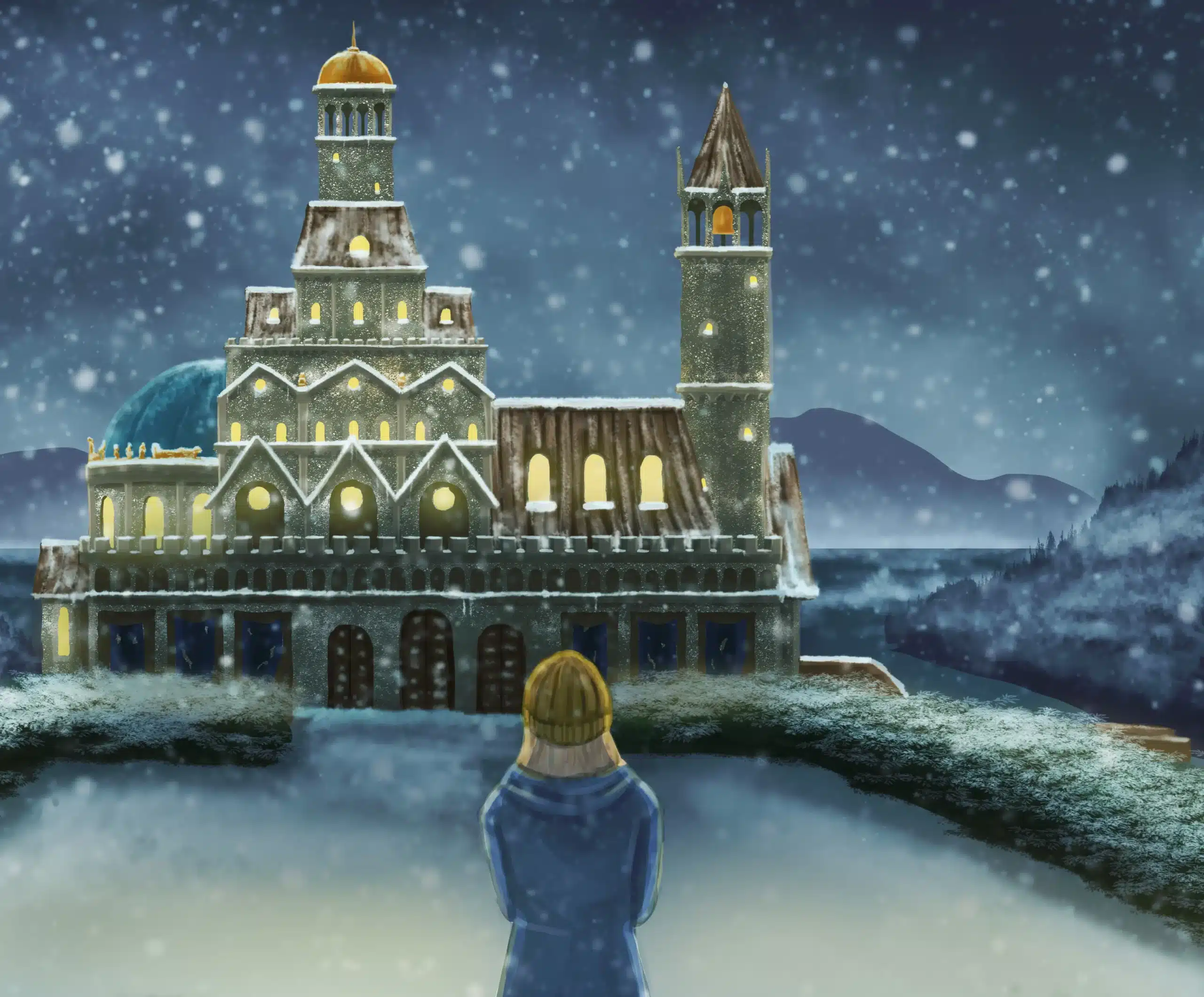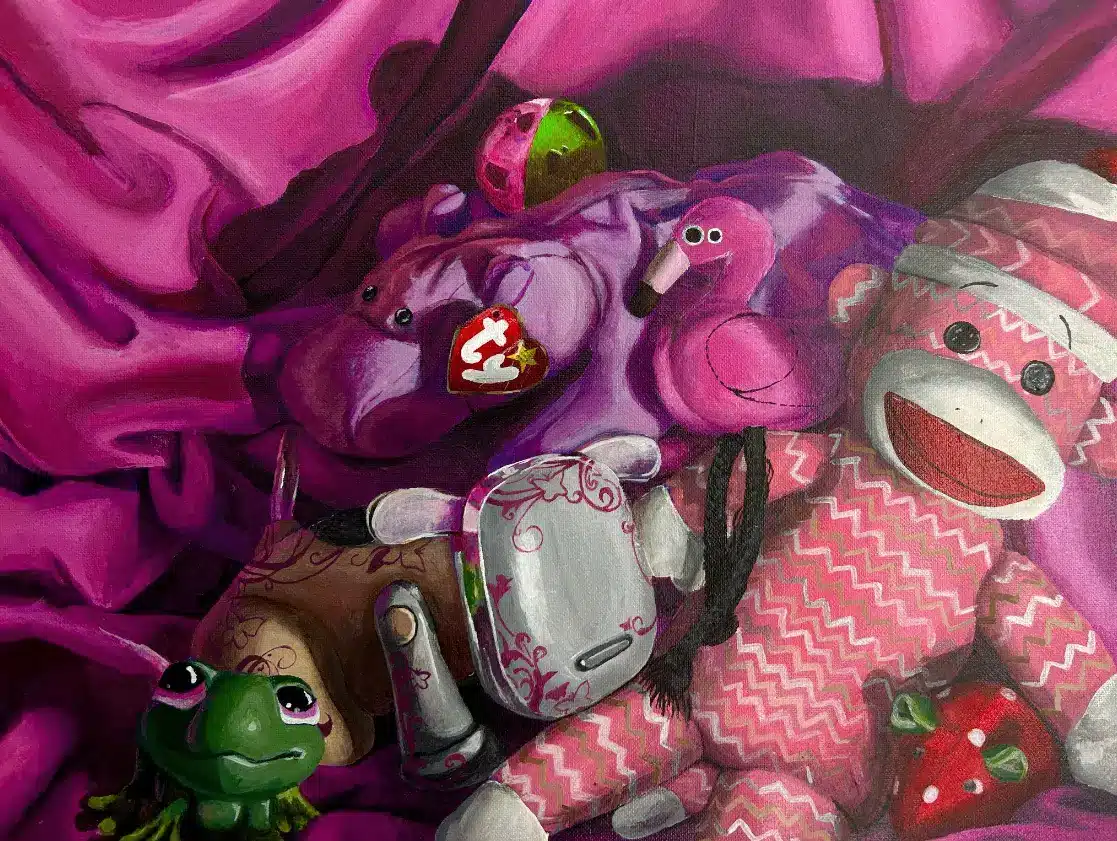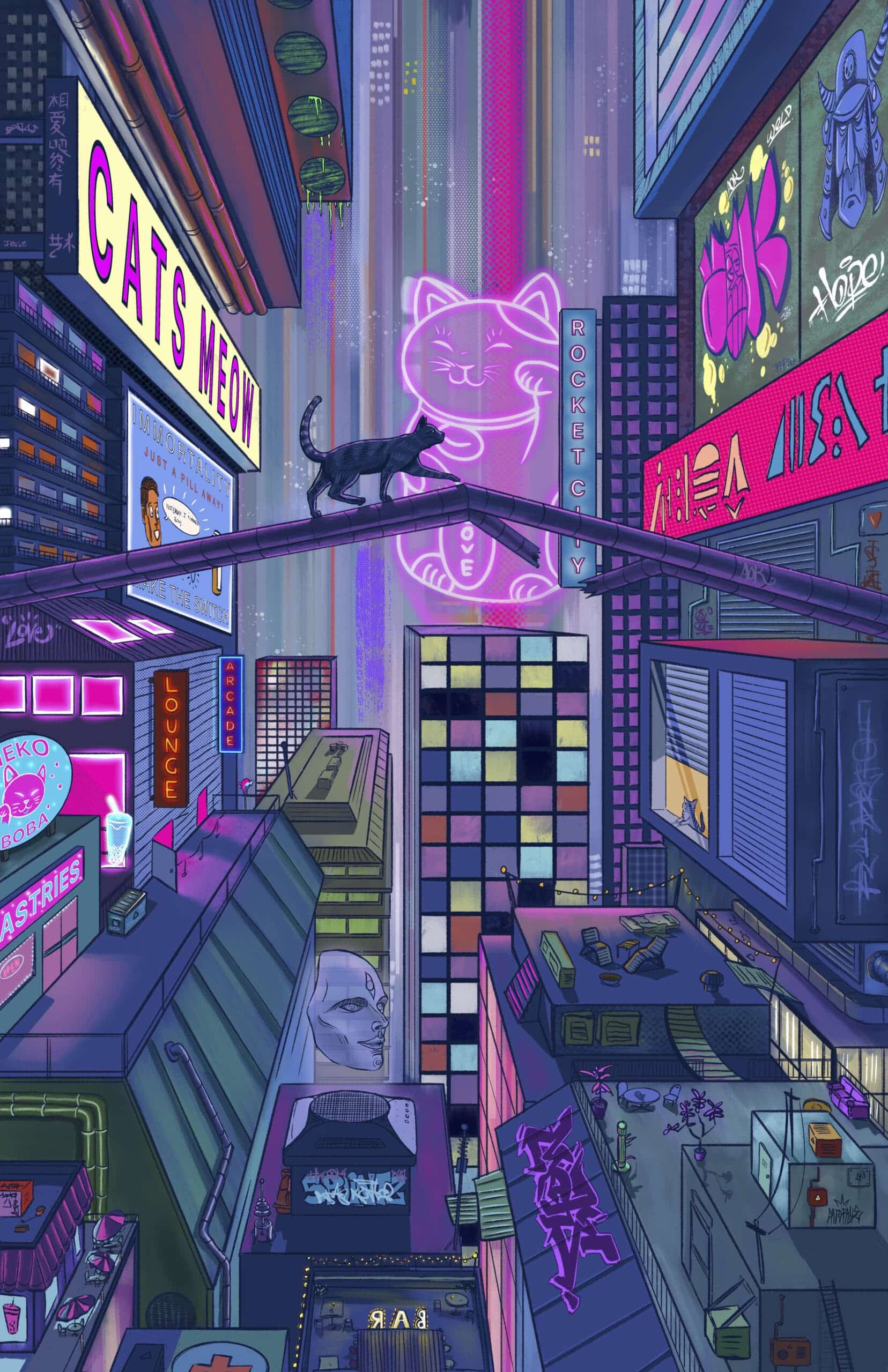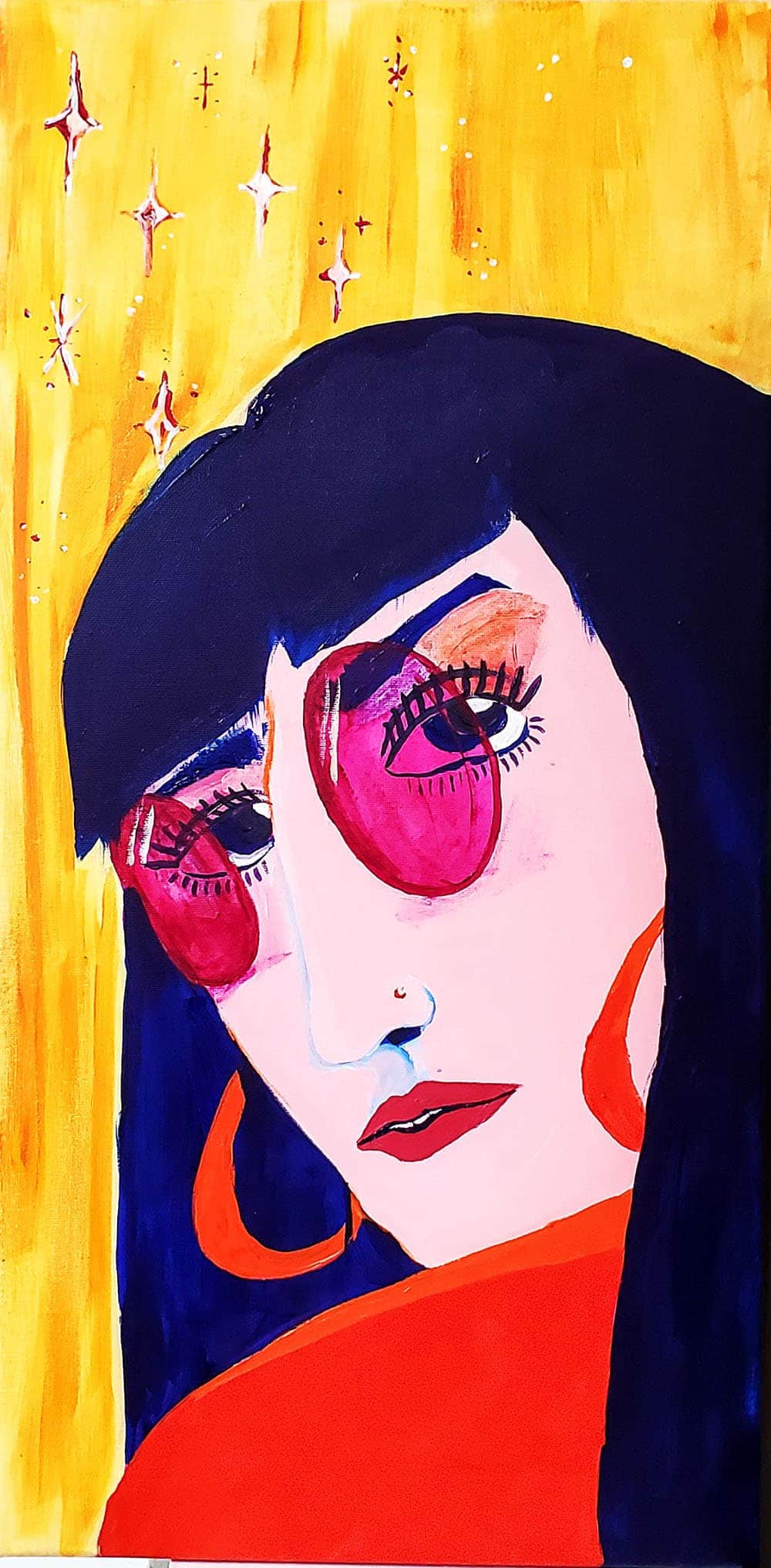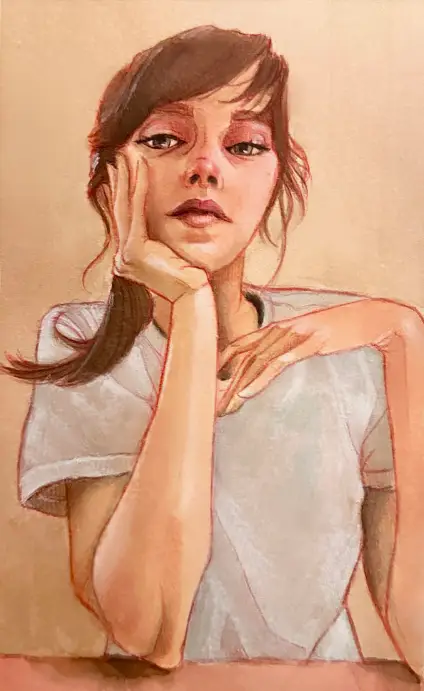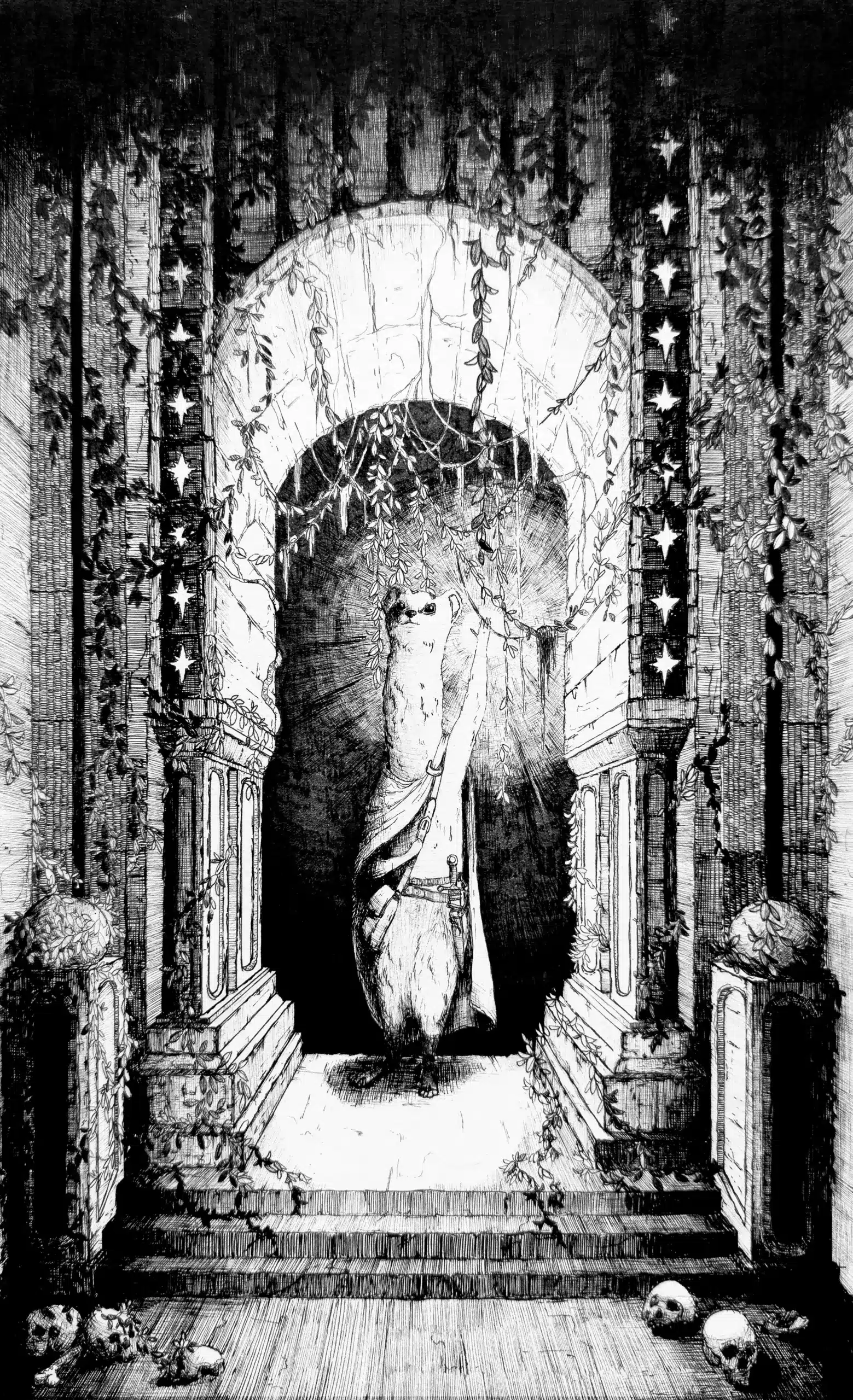Online Illustration Degree
Online Bachelor of Fine Arts
"*" indicates required fields
ONLINE Illustration degree PROGRAM OVERVIEW
As a student in the Illustration Online Degree Program, you will study the technical aspects of illustration, as well as the business practices that allow you to be successful in the industry. The virtual learning setting is perfect for self-motivated individuals who thrive in an independent learning environment. You’ll be taught by experienced online faculty who are also working professionals in the field of illustration. They’ll help you define your artistic style and establish yourself as an illustrator. From character design, to theories of color and space, and digital painting techniques, this comprehensive program will help you develop as a visual storyteller and a professional.
Our Online Illustration BFA Degree also prepares students to produce work for a host of businesses whose needs depend on imaginative visual thinkers. These include advertising and design agencies, magazine and book publishers, comic book studios, animation and game studios, greeting card companies, medical illustration firms, and toy manufacturers. Students graduate with a well-prepared portfolio and commitment to the profession – ready for a variety of career opportunities.
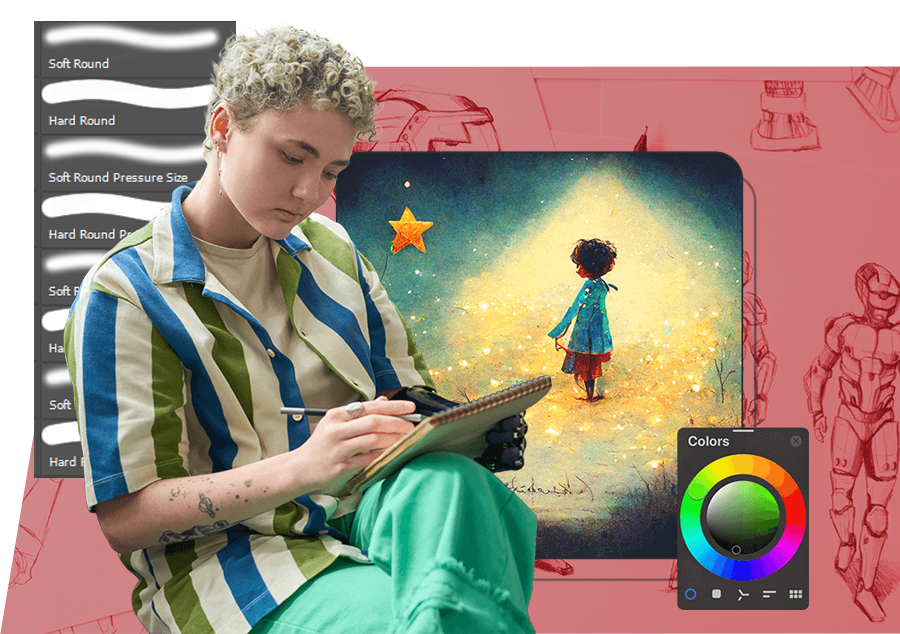
SKILLS YOU'LL LEARN

Innovative Storytelling

Traditional + New Media

Drawing Mastery

Composition Theory

Self Promotion

Portfolio Development
STEPS TO ADMISSION
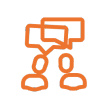
1
Complete your artist meeting with an admissions representative.

2
Submit an admissions application.

3
Create and submit your portfolio to be considered for a scholarship.

4
Submit official high school and college transcripts (for transfer students).

5
Submit the current year’s FAFSA and other financial aid documentation.
ACCREDITATION


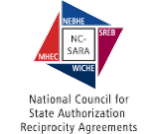
TUITION + FINANCIAL AID
At RMCAD, we understand that investing in a college education is a major decision and a major investment. That’s why we offer competitive, affordable tuition when compared to other art and design colleges. Students’ tuition rates are locked in at the time of their initial start date and will not increase as long as they remain enrolled in their program.
Online Illustration Degree COURSE DETAILS
For students in RMCAD’s bachelor’s degree in Illustration Online Program, the curriculum is structured to ensure students receive exceptional online instruction in the technical, conceptual, and business aspects of illustration to build a unique portfolio that demonstrates a strong and diverse skill set. With a strong emphasis in observational drawing and painting, this is especially helpful in learning to draw the figure.
Illustration Courses (33 Credits)*
IL 1510
Perspective
(3 Credits)
IL 2560
Still Life Painting
(3 Credits)
IL 2575
Illustration I
(3 Credits)
IL 3105
Figure Painting I
(3 Credits)
IL 3850
Digital Illustration I
(3 Credits)
IL 4450
Illustration Marketing
(3 Credits)
*This section does not include the full list of courses for this program.
Liberal Arts Courses (45 Credits)*
AH 1110
Art Historical Methods + Theories
(3 Credits)
EN 1110
Composition I
(3 Credits)
HU 1120
Introduction to Philosophy
(3 Credits)
NS 2030
Biology
(3 Credits)
The Liberal Arts curriculum is an exciting part of every student’s academic and creative journey at RMCAD. These courses provide the opportunity for students to engage with complex questions and ideas to develop critical thinking skills, a global consciousness, and awareness of art historical foundations that are essential for their intellectual, creative, and personal growth.
*This section does not include the full list of courses for this program.
Foundations Courses (24 Credits)*
FD 1020
2D Design: Elements + Principles
(3 Credits)
FD 1235
Observational Drawing
(3 Credits)
FD 1370
Life Drawing I
(3 Credits)
FD 2130
3D Design: Space + Materiality
(3 Credits)
Foundation Studies educates students in the development of creative studio practice by fostering individualized and collaborative learning that emphasizes cultural engagement, process, critical thinking, and visual literacy.
*This section does not include the full list of courses for this program.
Children's Book Concentration (6 Credits)
IL 3650
Children’s Book Illustration I
(3 Credits)
IL 4650
Children’s Book Illustration II
(3 Credits)
Concept Art Concentration (15 Credits)*
GA 3860
Digital Sculpting
(3 Credits)
IL 3655
Character Design
(3 Credits)
IL 3705
Elements of Concept Art I: Environments
(3 Credits)
IL 4605
Elements of Concept Art II: Characters
(3 Credits)
*This section does not include the full list of courses for this program.
Sequential Art Emphasis (6 Credits)
IL 2710
Sequential Art I
(3 Credits)
IL 2715
Sequential Art II
(3 Credits)
TECH + TOOLS
In order to prepare students seeking RMCAD’s Online Bachelor’s Degree in Illustration, students can expect:
- Access to industry standard software, a LinkedIn Learning subscription, LMS access, electronic library resources, cybersecurity, mental health counseling, and tutoring services through semester fees.
- Courses delivered through an interactive online platform, featuring video lectures, assignments, discussion boards, peer reviews, and opportunities to communicate and collaborate with peers and instructors.
- Virtual department events, plus several other opportunities to get involved virtually with other illustration students through clubs and organizations and school-wide events.
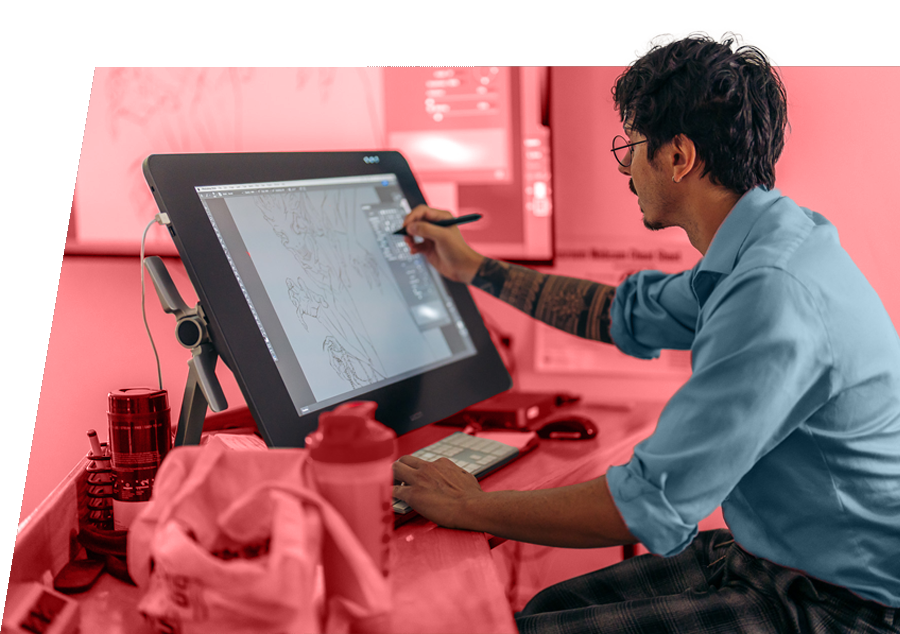
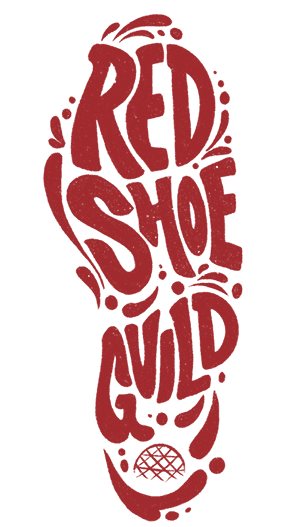
Red Shoe Awards
Every year, the RMCAD Illustration Department hosts this juried competition. The title Red Shoe Awards is a tribute to the department’s Red Shoe Guild. Student work is exhibited and judged by a panel of experts.
Illustration Stories

Typography Meets Illustration: Integrating Lettering Into Visual Art
Both typography and illustration play critical roles in design, and at first glance, it may appear that these two fields are entirely separate from each other. In reality, there is notable overlap between typography and illustration, especially when

Art Licensing for Illustrators: Turning Art Into Products
When you’re a skilled illustrator, there are plenty of potential income streams worth exploring. Some illustrators, for example, go on to work as editorial illustrators or even children’s book illustrators. Others may find their niche

Editorial Illustration: Visual Storytelling for Magazines and Newspapers
Art has long accompanied editorial text to help convey meaning and support the context of the article. While the landscape for newspapers and magazines continues to change and evolve, the need for editorial artwork remains clear. The
ILLustration CAREERS
RMCAD online Illustration graduates are launching exciting careers. When you have an online RMCAD Bachelor’s Degree in Illustration, you have the opportunity to pursue the following creative paths.
Editorial Illustrator
An editorial illustrator draws commentary pieces often used to supplement written content. This work can be used in books, magazines, and websites.
Children's Book Illustrator
Just as it sounds, a children’s book illustrator brings stories to life with their illustrations. While some are both author and illustrator, there is no requirement to do both. They often work independently, as a freelance illustrator for book publishers.
Concept Art for Games + Animation
A concept artist is a visual illustrator who is responsible for the overall visual style of the game or animation early in the development process. They may create sketches of the characters, settings, and UI pieces like menus and buttons. This work guides other artists to understand what the look and feel of the game or animation should be.
Comic Books and Graphic Novel Artist
While some comic book artists are both illustrator and author, they may also work with an author to bring their creative vision to life. This process often requires many versions before the final product is achieved.
Technical and Medical Illustrator
A technical illustrator produces detailed illustrations that are often used to supplement written content in textbooks, medical journals, technical websites, and instruction manuals. Medical illustration is a subset of technical illustration, specifically devoted to creating visual images for medical or scientific use in education, patient care, research, and more.
Freelance Illustrator
A freelance illustrator is an entrepreneur who takes on client projects on a contractual basis. They can work on a variety of project types and generate business via outreach and networking or through an agency or publishing company.
Gallery Artist
While many illustrators have more commercial careers, they also have the skill and creativity to be a gallery artist as their primary job or a secondary source of income. Gallery artists sell their work through art dealers at a gallery. Gallery exhibitions can boost an artist’s reputation by lending credibility to their work and increasing reach via marketing efforts.
FREQUENTLY ASKED QUESTIONS
What is the focus of the Online Illustration Degree Program at RMCAD?
The program focuses on mastering traditional and digital illustration techniques, storytelling, and professional practices in various fields such as editorial, children’s books, concept art, and sequential art.
What career opportunities are available for online illustration graduates?
Graduates will acquire the knowledge and skills to start careers as editorial illustrators, children’s book illustrators, concept artists, comic book artists, and freelance illustrators.
How are online courses delivered in the Online Illustration Program?
Courses are delivered through an interactive online platform, featuring video lectures, assignments, discussion boards, peer reviews, and opportunities to communicate and collaborate with your peers and instructors.
What skills will students learn in the Online Illustration Program?
Students will learn traditional drawing, digital painting, character design, composition, storytelling, and self-promotion.
What are the technical requirements for the Online Illustration Program?
Students need a computer that meets RMCAD’s specifications, reliable internet access, and relevant software such as Adobe Creative Suite and Procreate. For more information on program materials, visit here.
What support services are available for online illustration students?
All students receive software licensing, a LinkedIn Learning subscription, LMS access, electronic library resources, cybersecurity, mental health counseling, and tutoring services through their semester fees.
What are the admission requirements for the Online Illustration Degree Program?
Applicants need a high school diploma or equivalent and completion of the college’s application process. To be considered for a scholarship, students will also need to create and submit a portfolio of artwork.
What kind of portfolio should students submit for the Online Illustration Program application?
A portfolio showcasing your unique artistic voice and your best finished work, including examples of traditional and digital illustrations, narrative artwork, and observational drawings or sketches.
How does RMCAD ensure the quality of online education?
RMCAD ensures quality through experienced faculty, regularly updated curriculum, and interactive, hands-on coursework designed for online delivery.
Are there any opportunities for online students to collaborate on projects?
Yes, online students can collaborate on projects through virtual classrooms, group assignments, and online forums.
What are the advantages of studying illustration online at RMCAD?
Advantages include flexible scheduling, access to industry-standard tools, feedback from instructors, and the ability to study from anywhere.
What software and tools are used in the Online Illustration Program?
Students use Adobe Photoshop, Illustrator, and Procreate for various illustration projects. For more information on program materials, visit here.
Can online students participate in RMCAD's campus events?
Yes, online students are welcome to participate in campus events, exhibitions, and graduation ceremonies. Visit the events calendar here.
What are the Liberal Arts requirements in the Online Illustration Program?
The curriculum includes courses that develop critical thinking, global consciousness, and information literacy.
What are the Foundations requirements in the Online Illustration Program?
Foundation courses enable students to refine essential skills, get comfortable with the tools they’ll use throughout their program, and study relevant basics— including drawing, composition and color theory. These courses facilitate ideation and collaboration.
How do online students showcase their work?
Online students can showcase their work through virtual galleries, online exhibitions, and by creating professional portfolios.
What makes RMCAD's Online Illustration Program unique?
The program’s combination of traditional and digital techniques, focus on storytelling, individualized support, and professional development sets it apart.

